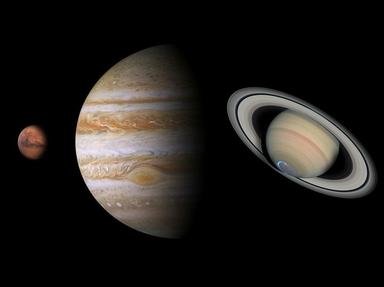Quiz Answer Key and Fun Facts
1. What is the name given to the string of light beads that appear on the horizon just before a solar eclipse?
2. Which German born British discoverer of a planet coined the name "Asteroids"?
3. In the solar system, what are Perseids, Orionids, Draconids, and Geminids?
4. Aphrodite Terra and Ishtar Terra are the two major landmasses on which planet?
5. Other than the earth, which is the only solar system object to have a predominantly NITROGEN atmosphere?
6. If the sunspots are the darker areas, then what are the brighter areas on the sun's surface called?
7. In the solar system, what are classified into Groups, Stones, Irons, and Stony Irons?
8. In spectral analysis what type of star is the sun?
9. The space probe Vega 1, Vega 2, Sakigake, Planet A and Giotto were all launched to study which celestial object?
10. Comet tails are of two types.
Source: Author
lordsom
This quiz was reviewed by FunTrivia editor
crisw before going online.
Any errors found in FunTrivia content are routinely corrected through our feedback system.
